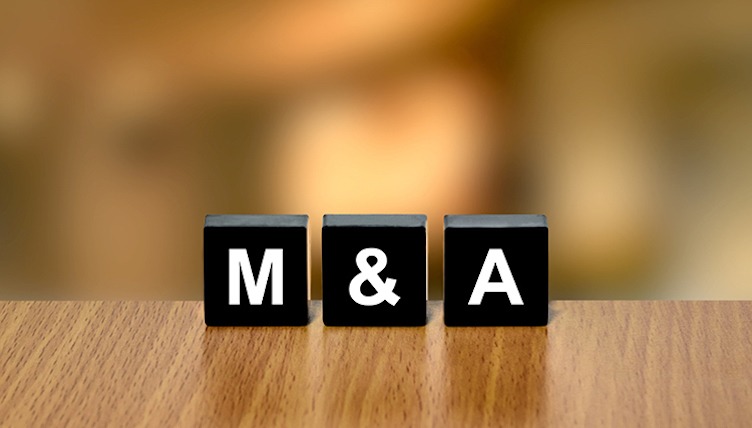Thermo Fisher’s $7.2 Billion Buy of Patheon: The Implications for the CDMO Market
Thermo Fisher Scientific has agreed to acquire Patheon for $7.2 billion, inclusive of approximately $2.0 billion of net debt. So what is the impact for Thermo, Patheon, and the contract dosage-form market?.
The acquisition of Patheon provides Thermo Fisher with small- and large-molecule development and manufacturing capabilities as well as formulation development and drug product manufacturing and will become part of Thermo Fisher’s Laboratory Products and Services Segment. DCAT Value Chain Insights examines the proposed combined company and the market implications.
Inside the deal
Thermo Fisher Scientific has agreed to acquire Patheon, a contract development and manufacturing organization, for $7.2 billion, inclusive of approximately $2.0 billion of net debt. The boards of director of both companies have approved the acquisition under which Thermo Fisher will commence a tender offer to acquire all of the issued and outstanding shares of Patheon for $35.00 per share in cash.
Patheon, which has approximately 9,000 employees worldwide, generated 2016 revenue of approximately $1.9 billion and will become part of Thermo Fisher’s Laboratory Products and Services Segment. Thermo Fisher expects to realize total synergies of approximately $120 million by year three following the close of the deal, consisting of approximately $90 million of cost synergies and approximately $30 million of adjusted operating income benefit from revenue-related synergies.
The acquisition of Patheon provides Thermo Fisher with small- and large-molecule development and manufacturiing capabilities as well as formulation development and drug product manufacturing. Thermo Fisher’s products and services support research, clinical trials, and production and includes clinical trials logistics services.
The transaction, which is expected to be completed by the end of 2017, is subject to the satisfaction of customary closing conditions, including the receipt of applicable regulatory approvals, the adoption of certain resolutions relating to the transaction at an Extraordinary General Meeting of Patheon’s shareholders, and completion of the tender offer. Thermo Fisher has entered into tender and support agreements with affiliates of JLL Partners and Royal DSM, whose collective holdings represent approximately 73% of Patheon shares, under which they will tender their shares in the transaction.
For Patheon, its pending acquisition by Thermo Fisher continues a multiyear process in which the company has been pursuing a strategy of becoming an end-to-end contract services provider of active ingredients (both small molecules and biologics) and its historical core competency in formulation development and drug product manufacturing. The key deal for Patheon dates back to 2014 with the formation of DPx Holdings B.V., privately owned by the private-equity firm JLL Partners (51%) and Royal DSM (49%), which was the result of a $2.65-billion deal between the Patheon and DSM, first announced in November 2013 and completed in March 2014. JLL contributed $500 million in equity to DPx Holdings B.V., and DSM contributed DSM Pharmaceutical Products and received approximately $115 million in cash and $75 million of preferred partnerships interest, thereby valuing DSM Pharmaceutical Products at $670 million. DPx Holdings B.V. then effected a Plan of Arrangement pursuant to the Canada Business Corporations Act with Patheon under which DPx Holdings B.V. acquired Patheon for $9.32 per share resulting in a total enterprise value for Patheon of approximately $1.98 billion and a combined deal value of $2.65 billion.
Since 2012, Patheon has been active on the acquisition front with key acquisitions to build both its active ingredient service capabilities and formulation development and drug product manufacturing capabilities: Banner Pharmacaps, DSM Pharmaceutical Products, Gallus BioPharmaceuticals, Agere Pharmaceuticals, and IRIX Pharmaceuticals.
In 2015, Patheon acquired IRIX Pharmaceuticals, a Florence, South Carolina-headquartered company, specializing in making difficult-to-manufacture active pharmaceutical ingredients (APIs) for drugs from early and late development, through commercial launch. With the acquisition, Patheon secured additional API development and manufacturing services in the US, including high-potency (SafeBridge Class IV certified) and controlled substances (Schedule 1-4) and commercial API manufacturing at sites in Greenville and Florence, South Carolina. Also in 2015, Patheon acquired Agere Pharmaceuticals, a privately held contract development and manufacturing organization (CDMO), headquartered in Bend, Oregon, specializing in solubilization technologies and related science to improve the bioavailability of drugs. The acquisition of Gallus BioPharmaceuticals,, a contract manufacturing company specializing in biologics, was completed in Septemer 2014, and provided Patheon with US-based biologic drug substance sites in the US and complemented Patheon’s two existing biopharmaceutical production sites in Groningen, the Netherlands and Brisbane, Australia, which the company secured through the DSM transaction. Banner Life Sciences, which Patheon acquired in 2012 (then called Banner Pharmacaps), provided the company with proprietary products and technology primarily based on soft gelatin capsules.
Earlier this year, Patheon added to its small-molecule development and manufacturing capabilities by acquiring Roche’s API manufacturing facility in Florence, South Carolina, which Patheon announced in November 2016. The Florence site adds a 300,000 square-foot facility with manufacturing capacity for APIs ranging from development to manufacturing services. The addition of this site expands Patheon’s capacity for manufacturing highly potent compounds and adds capabilities to support solid-state chemistry, micronization (small & large), and future commercial spray drying. The site will serve as Patheon’s flagship US API operation for commercial-scale and mid-scale API production.
Patheon, which became a publicly traded company in 2016, has three main segments: Drug Product Services, Pharmaceutical Development Services, and Drug Substance Services. Drug Product Services provides manufacturing and packaging for approved prescription, over-the-counter, and nutritional products. Pharmaceutical Development Services provides a wide spectrum of advanced formulation, production, and technical services from the early stages of a product’s development to regulatory approval and beyond, as well as for new formulations of approved products for lifecycle extension. Drug Substance Services provides development and manufacturing for the biologically active component of a pharmaceutical product from early development through commercial production.
Earlier this month, Patheon completed a $26-million expansion project at its Greenville, North Carolina manufacturing site that updates one of its sterile Pharmaceutical Development Services (PDS) suites and adds a sterile PDS suite. The PDS Suites 1 and 2 provide 7,000-square-feet in GMP sterile manufacturing space. The newly built PDS suite will manufacture sterile liquid and lyophilized drug products. It features freeze dryers, a filling line fitted with a restricted access barrier system (RABS) for sterile drug products, and disposable manufacturing to eliminate the need for cleaning verification for liquid filling. This suite is designed for products in clinical development with the ability to scale up to larger batch sizes via Patheon’s network of commercial-scale capabilities either co-existing within the Greenville facility or in facilities in Europe.
Patheon’s Greenville manufacturing site is a large multi-purpose pharmaceutical manufacturing and packaging campus. The facility provides both solid dose form manufacturing/packaging and sterile dose manufacturing, filling, and lyophilization of biopharmaceuticals and small molecules and also has a continuous manufacturing suite.
Competitive landscape
The outsourcing of product development by the pharmaceutical industry is an important driver in the future combined company. In 2015, the pharmaceutical industry spent approximately $141.0 billion on formulation, development and manufacturing, according to Evaluate Pharma, and approximately $40.0 billion was expected to be outsourced to CDMOs in 2016, according to Root Analysis, as cited by Patheon in its 2016 annual report. Currently, only 26% to 31% of pharmaceutical industry spending on formulation, development and manufacturing is outsourced, and the outsourced pharmaceutical manufacturing market is expected to grow at approximately 7 to 8% annually in the foreseeable future, noted Patheon in its report , with services for products requiring specialized capabilities (e.g., sterile production, solubility solutions) growing at a higher rate than the overall market. According to Boston Consulting Group, a global management consulting firm and advisor on business strategy, the API small molecule market for chemical API manufacturing totaled approximately EUR 20.0 billion ($22 billion) in 2012 and was expected to see growth of approximately 7.9% annually through 2016. According to Datamonitor, a business intelligence information provider, the API large-molecule market for mammalian biologics pharmaceutical contract manufacturing totaled approximately $1.9 billion in 2012 and may experience growth of approximately 9.4% annually through 2017, according to information from the report.






